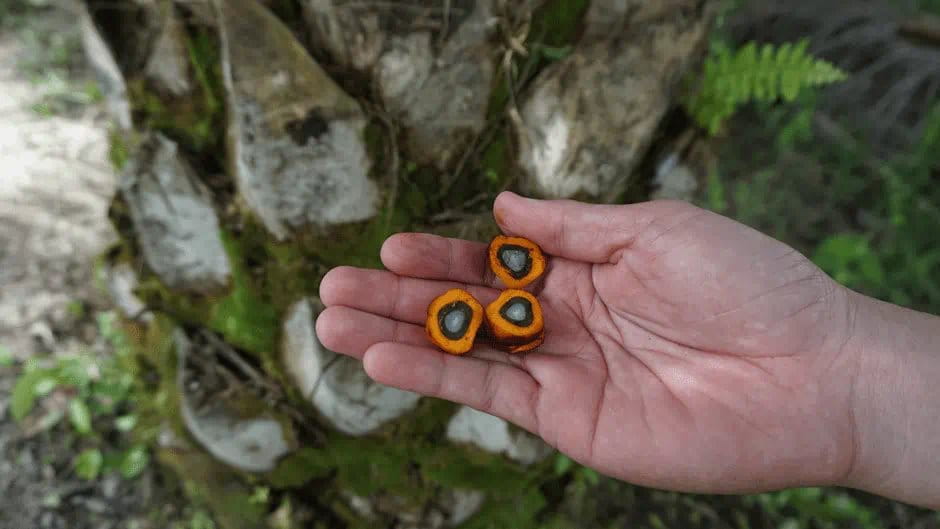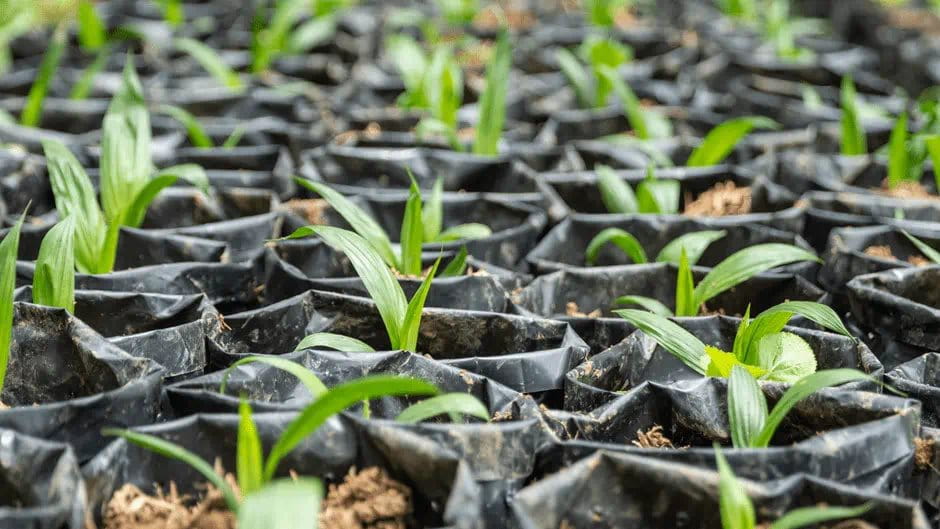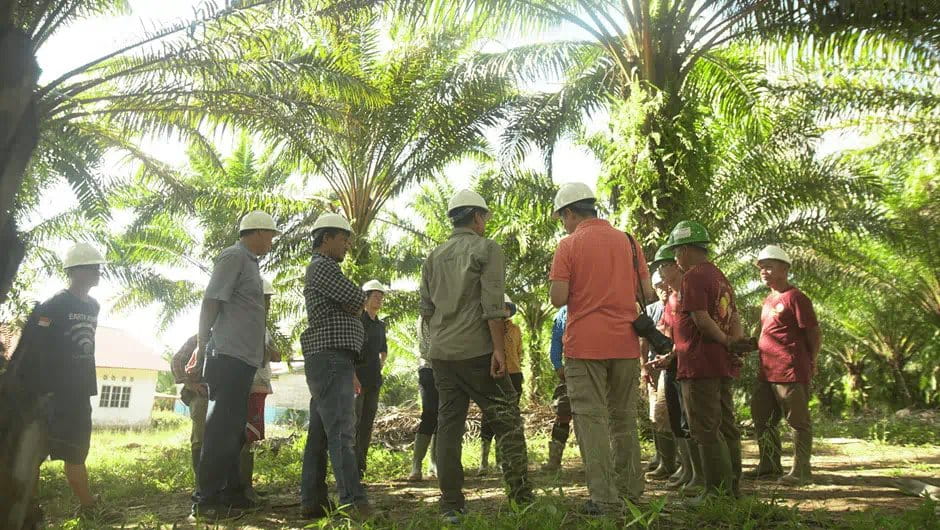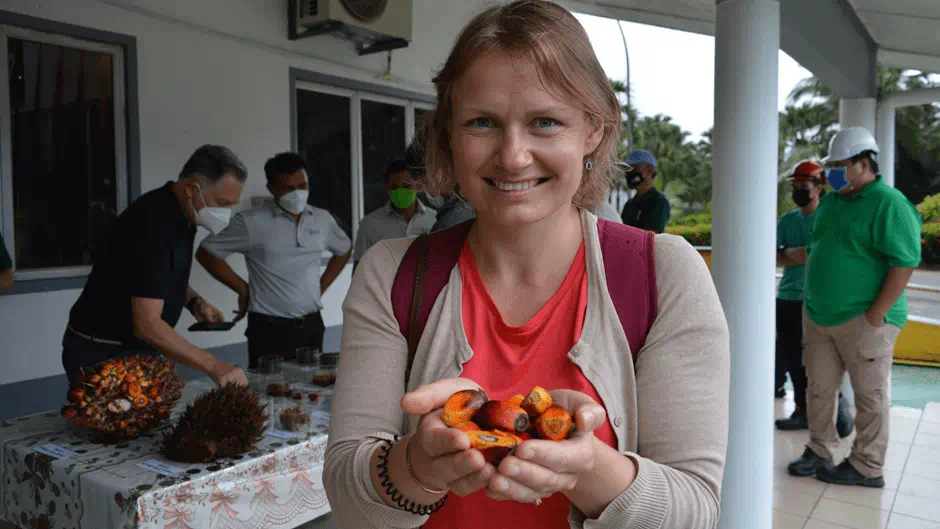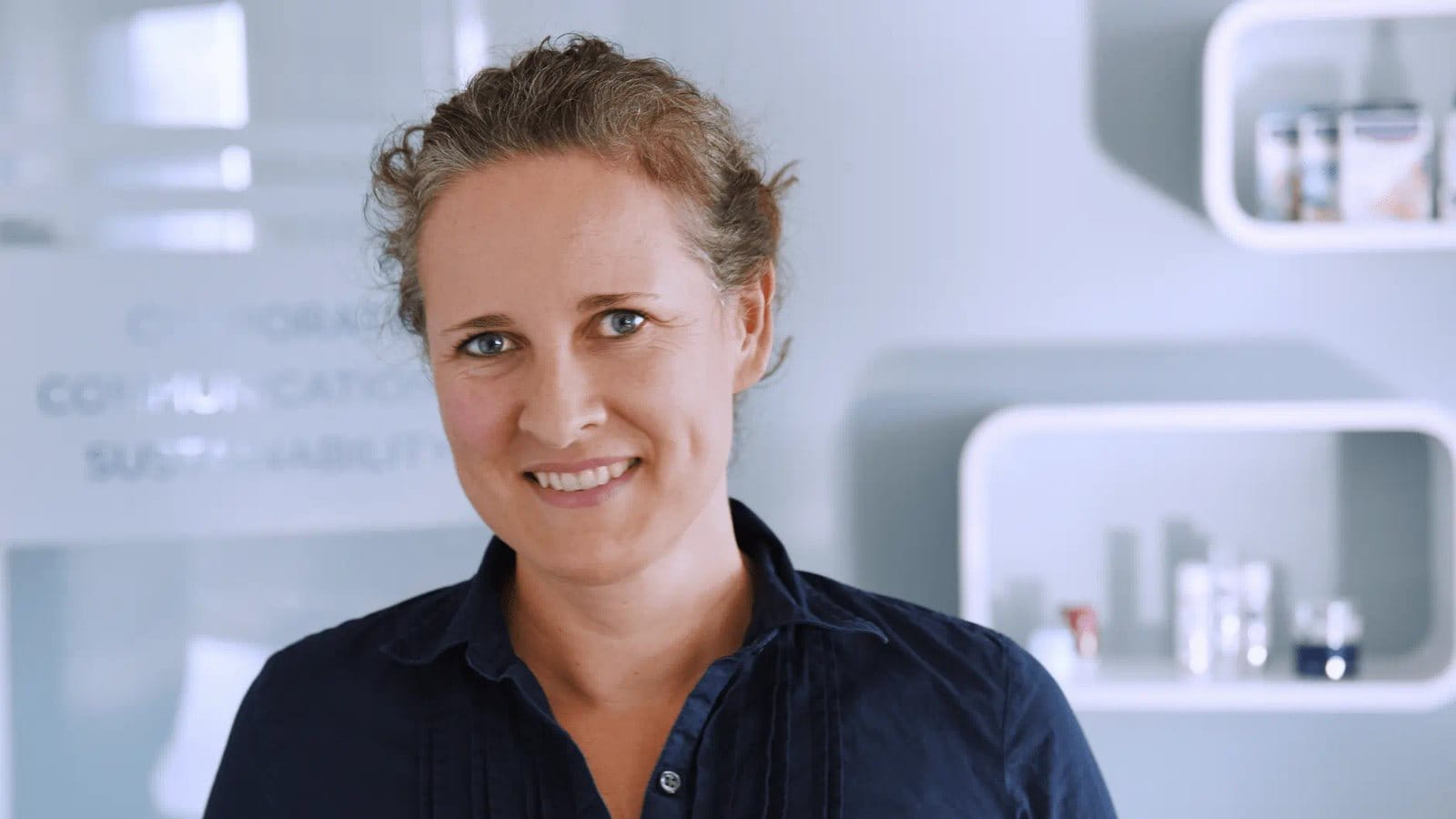
Since 2018, we have been working together with WWF in Indonesia to support smallholders in the sustainable cultivation of palm oil.
After four years of intensive local involvement, the project is now being extended: Our raw material supplier Evonik is coming on board as a third partner, and by 2026 around 200 smallholders in the Indonesian province of West Kalimantan are to have their palm oil cultivation certified in accordance with the RSPO standard. RSPO stands for “Roundtable for Sustainable Palm Oil” and is the international standard for sustainably certified palm oil.
We spoke with Julia Beier, Responsible Sourcing Manager at Beiersdorf and Victoria Müller, Sustainable Land Use Southeast Asia Officer at WWF Germany. Both coordinate the joint commitment as project managers.

